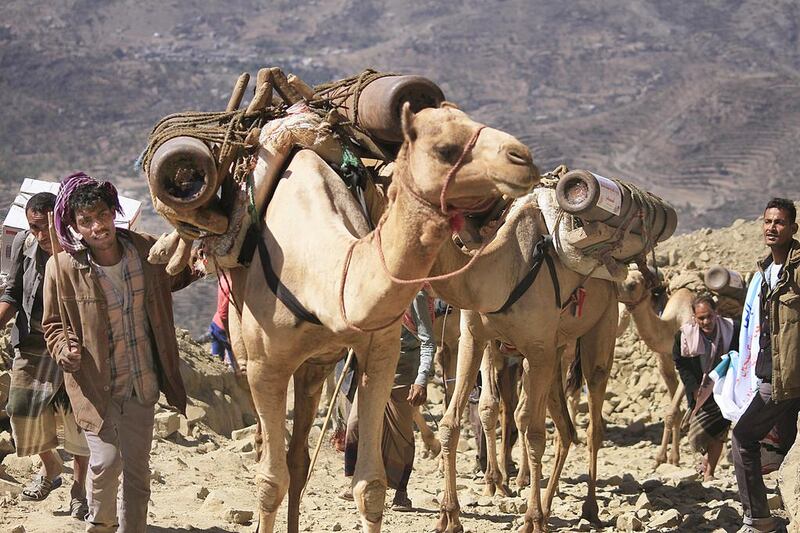ADEN // Yemeni hospitals in the besieged city of Taez are facing shortages of doctors, medicine and even fuel for generators as they try to treat scores of people injured in fighting since peace talks were put on hold.
Clashes between the Houthi rebels and pro-government forces resumed last week after talks in Kuwait ended without a breakthrough earlier this month.
Taez has become the main front line in the conflict with the Iran-backed rebels encircling parts of the city held by forces supporting the internationally recognised government and enforcing a brutal blockade.
Hisham Abdul Malik, a doctor in Al Thawra hospital said more than 80 injured people had been brought in for treatment in just 48 hours, including 20 civilians, most with shrapnel injuries caused by Houthi shelling. Many pro-government fighters have also been injured in the clashes. The number of dead is still unclear.
“Most of the fighters are suffering either from shrapnel inside their bodies by the Houthis’ rockets or the landmines, and some of them were shot and the bullets are still inside their bodies,” said Dr Abdul Malik.
Al Thawra is the main hospital in Taez but its services have been decimated by the siege on the city which has cut off basic supplies of medicines and oxygen cylinders. Aid agencies have been unable to help the hospital since the latest round of fighting started.
Dr Abdul Malik said the hospital is in dire need of X-ray equipment and supplies and drugs to help them cope with injuries where there is a lot of bleeding. The doctor said the hospital had recently sent a list of what it needs to the governor of Taez, Ali Al Maamari, and was waiting for his response.
But the biggest problem they are facing is a lack of doctors and surgeons.
“We need doctors who can remove shrapnel from the patients bodies, and neurologists” to treat people with severe injuries, Dr Abdul Malik said.
Many of the foreign specialist doctors who used to work at the hospital fled the city when the war escalated in 2015. About 1,200 health practitioners left the country in total, the World Health Organisation said.
Now, staff at Al Thawra are unable to carry out many operations and the injured are often told they have to make their way to Aden or abroad for treatment.
The Houthis cut off funds to the hospital because it treats pro-government forces and have targeted it several times with shelling.
On Sunday, pro-government forces broke the Houthis' siege of Taez and secured control of the main road into Taez from the provinces of Lahj and Aden. Staff hope this will enable aid agencies to send in supplies.
“We are appealing the charitable associations, local and international organisations to take advantage of the breaking of the siege and help us with fuel, medicines, and oxygen cylinders,” Dr Abdul Malik said.
Al Thawra handles the injured people from inside the city, while the fighters injured on the outskirts of Taez are sent to Khalifa hospital in Al Turbah, which is better supplied but still desperately short of doctors.
On Saturday, 43 injured pro-government fighters travelled from Taez to Aden, from where they will be transferred to Sudan for treatment.
foreign.desk@thenational.ae





